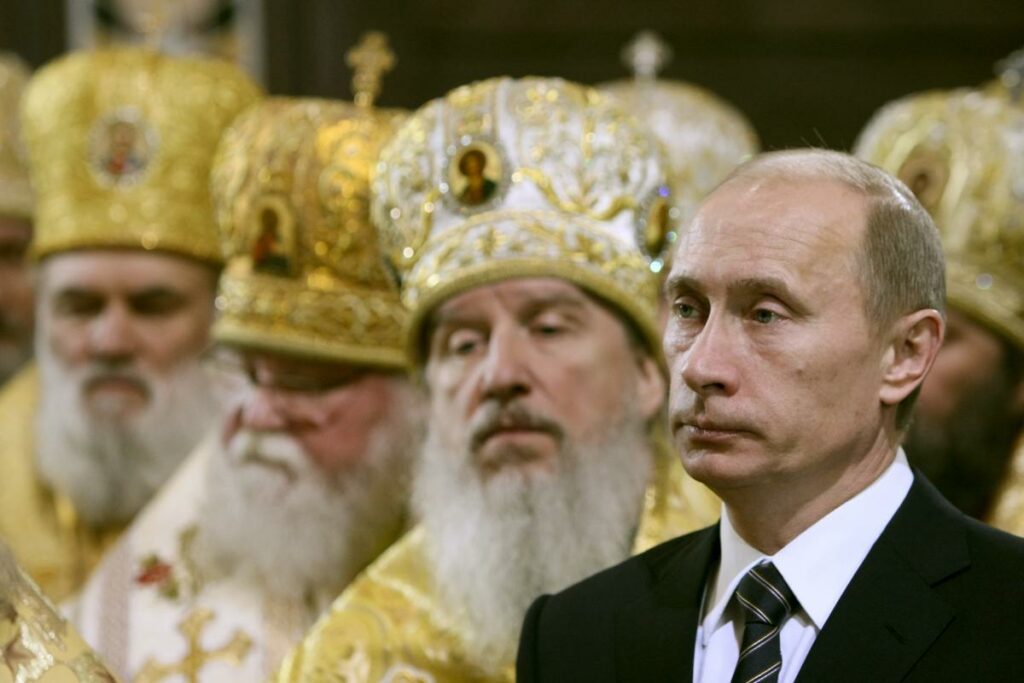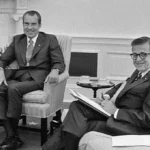Blog Post
Vladimir Putin attacks the woke West. What game is he playing?
By Jonathon Van Maren
On January 19, 2018, Russian President Vladimir Putin stripped off his fur coat and boots in sub-zero temperatures and, flanked by black-robed Orthodox priests wielding enormous gold crosses, descended into the icy waters of Lake Seliger. The 65-year-old leader crossed himself as he entered the pool and then lowered his head underwater before emerging. It was a gesture of enormous symbolism: the commemoration of the baptism of Christ is an Orthodox ritual that has been practiced in some parts of Europe since the 4th century. To many, Putin’s observance of the religious ritual was simply another cynical attempt at a bare-chested photo op. To the Russian Orthodox faithful, meanwhile, it was more evidence of Vladimir Putin’s support for the Russian Orthodox Church—if not his own personal devotion.
Each of these perspectives contains elements of truth. Putin’s increasingly visible support of the Russian Orthodox Church is a key part of the leader’s search for a new national identity after the collapse of the Soviet Union, an identity that is uniquely Russian and rooted in Russia’s rich and storied history. Putin’s biographers agree that he went through a tremendous crisis of identity following the collapse of the Soviet Empire where he had spent his life serving in the KGB. But those who dismiss the rejoicing in some Orthodox quarters are forgetting that many of the faithful still remember living in a nation that persecuted all the Christian denominations with vicious relentlessness. For those who recall being forbidden to teach their own children about their faith, seeing the leader of Russia joining an Orthodox ritual is both potent and profound—just as Putin intends.
A couple of years ago, I joined another journalist in Russia for several weeks to research what some have called a resurgence of Orthodoxy. Is Russia experiencing a great reversal of her century of state-enforced godlessness? Is Vladimir Putin only a crass opportunist, or is he also genuinely a Russian Orthodox believer? Is Russia becoming more socially conservative, as media outlets across the West consistently claim? To what extent do any of these trends impact Russia’s standing in the West and influence the increasingly toxic geopolitical climate? Over dozens of hours of research and many interviews with Russian journalists, students, and historians, a few embryonic answers began to emerge.
It is certainly true that the perception of Russian Orthodoxy in Russia has become positive. It is also true—which I saw for myself—that it is not just the elderly attending church. The cathedrals I attended were packed with young people and families on Sundays. A choir director noted in awe that nobody is prohibited from singing in a church choir these days—indeed, many singers from prestigious music institutions now also sing at church services on Sunday. Churches are everywhere, and they are actually open. In some, wizened old men and women cross themselves and place carefully lit candles and burning incense. In others, young people stand with their hats respectfully twisting in their hands. Church is again an intergenerational experience.
A new narrative concerning the Russian Orthodox Church is beginning to emerge: the story of an institution that survived the savage persecutions of the Soviet era and preserved the true history and culture of Holy Mother Russia from the godless barbarians who could butcher with the comfort that there was no God to judge them for their bloody deeds. These martyrs now serve as inspiration, and the blood that watered the Russian soil is a new lifeblood for a desperately needed Russian identity.
READ THE REST OF THIS ARTICLE AT THE EUROPEAN CONSERVATIVE









Excellent article, Jonathon. I did read the entire piece from the European Conservative. I wonder how Putin would defend his alliance with China, whose Chinese Communist Party is so militantly anti-Christian–indeed, anti-religion in general. It makes for strange bedfellows.
Not so strange. I believe Putin is a clear-eyed but cold-blooded pragmatist.